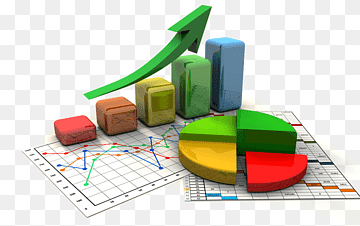Introduction:
In the era of big data and advanced analytics, a Ph.D. in Business Statistics stands out as a critical pathway for those aspiring to delve into the depths of data analysis and statistical methodologies. This degree is designed for individuals aiming to develop extensive research capabilities and a profound understanding of statistical theories applicable in various business contexts. Pursuing a Ph.D. in Business Statistics can lead to groundbreaking research opportunities and lucrative careers in academia, industry, and government.
Admission Process:
- Application Submission: Candidates must submit a completed application by the specified deadline, usually including personal information, academic records, and a statement of purpose.
- Prerequisite Courses: Applicants should have completed relevant undergraduate and possibly master’s courses in statistics, mathematics, or related fields.
- Standardized Tests: Most programs require GRE scores, and for non-native English speakers, TOEFL or IELTS scores.
- Letters of Recommendation: Prospective students need to provide letters from academic or professional references who can vouch for their research potential and academic prowess.
- Interviews: Some programs conduct interviews (either in-person or online) to assess the candidate's research interests and motivation for pursuing a Ph.D.
- Research Proposal: Applicants might be asked to submit a research proposal that outlines their research interests and potential projects.
Eligibility:
- Educational Background: A master’s degree in statistics, mathematics, economics, or a closely related field, with a strong academic record.
- Research Experience: Experience in research, especially in statistical methods, is highly advantageous.
- Quantitative Skills: Strong quantitative skills, as evidenced by previous coursework or work experience.
- Computational Proficiency: Proficiency in statistical software such as R, SAS, or Python.
- Analytical Thinking: Ability to think critically and creatively about complex problems.
- Communication Skills: Strong written and oral communication skills are crucial for success in a Ph.D. program.
Completion Time:
The time to complete a Ph.D. in Business Statistics can vary widely but typically ranges from 4 to 6 years. This timeline includes coursework, comprehensive exams, and dissertation research.
Career Opportunities:
- Academic Careers: Positions as professors or researchers in universities.
- Government Research: Roles in government agencies that require high-level statistical analysis.
- Finance and Banking: Opportunities in risk management, quantitative trading, and financial forecasting.
- Healthcare Analytics: Roles in biostatistics, epidemiology, and health data analysis.
- Technology Firms: Data scientist and quantitative analyst positions in tech companies.
- Consulting Firms: Expert consultant roles in business analytics and data management strategies.
Syllabus:
- Advanced Probability Theory
- Statistical Inference
- Multivariate Analysis
- Time Series Analysis
- Experimental Design
- Bayesian Statistics
Internship Opportunities:
- Corporate Internships: Positions in major companies to apply statistical theories in real-world scenarios.
- Research Internships: Opportunities in academic or government research projects.
- Healthcare Sector: Internships that focus on statistical applications in medical research.
- Financial Institutions: Roles that involve quantitative finance and risk analysis.
- Consulting Internships: Experience with consulting firms, focusing on data-driven decision-making.
Scholarships and Grants:
- University Fellowships: Many institutions offer fellowships that cover tuition and provide a stipend.
- Government Grants: Funds available for research in specific areas of interest to government agencies.
- Private Scholarships: Scholarships from private foundations that support statistical education.
- Corporate Sponsorships: Companies may sponsor students who commit to working with them post-graduation.
- International Scholarships: For non-resident students, various international scholarships are available.
FAQs:
What is the primary focus of a Ph.D. in Business Statistics?
It focuses on developing advanced statistical analysis skills and research methods applicable in business.
What are the prerequisites for applying to a Ph.D. in Business Statistics?
A strong background in mathematics and statistics, previous research experience, and proficiency in statistical software.
What kind of career can I pursue with a Ph.D. in Business Statistics?
Careers in academia, government research, financial analysis, healthcare analytics, and more.
Are there opportunities for practical experience during the Ph.D. program?
Yes, most programs encourage or require internships to gain real-world experience.















